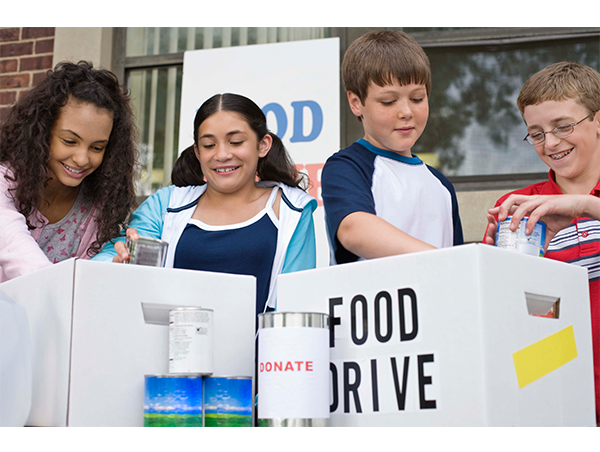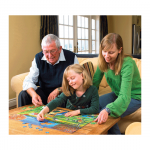- Book Reviews THE ASTRAL LIBRARY by Kate Quinn
- Book Reviews THE HARD LINE, A Gray Man Novel (Gray Man series, Book 15) by Mark Greaney
- Children's Book Reviews THE NUTCRACKER by E.T.A. Hoffman
- Children's Book Reviews RANGE: HOW EXPLORING YOUR INTEREST CAN CHANGE THE WORLD by David Epstein
- Children's Book Reviews CHICKA CHICKA BOOKS: I LOVE DAD AND TRICKA TREATA
- Book Reviews FAMILY DRAMA by Rebecca Fallon
- Book Reviews WORSE THAN A LIE by Ben Crump
- Book Reviews THE LAST OF EARTH by Deepa Anappara
- Book Reviews THREE HITMEN A BABY by Rob Hart
- Book Reviews ARTIFACTS by Natalie Lemle

Straight A’s
I’ve never put a lot of stock into report cards.
Don’t get me wrong – I value school and all that it exposes my kids to. I want them to do their best and to feel successful. But I don’t think a report card tells the full story, in the same way that my resumé or annual review wouldn’t sum me up as a working professional.
 My 11-year-old, Katherine, brought her report card home last week, and it confirmed that she was progressing along as she should be. Great! I’m happy with that. If it had highlighted an area or two in which we could focus to help her catch up with the class, I’d have been just as happy. I didn’t worry that there were no notes indicating that she was ahead of the class. I don’t push her to achieve As. I simply want her to put forth her best effort. Katherine was pleased with her results, and satisfied they reflected her effort, and that’s what counts.
My 11-year-old, Katherine, brought her report card home last week, and it confirmed that she was progressing along as she should be. Great! I’m happy with that. If it had highlighted an area or two in which we could focus to help her catch up with the class, I’d have been just as happy. I didn’t worry that there were no notes indicating that she was ahead of the class. I don’t push her to achieve As. I simply want her to put forth her best effort. Katherine was pleased with her results, and satisfied they reflected her effort, and that’s what counts.
With my daughter Alex already in university, I now have the benefit of hindsight. I’m no longer iffy about my position on report cards. I firmly stand my ground, loud and proud: earning straight-As on a report card is not the be-all-end-all it’s made out to be. Grades are only one piece of the pie.
Many of the extra-curriculars and hobbies that helped Alex choose her university program of study (Commerce) had nothing at all to do with academics.
 If I’d insisted on straight-As, Alex might not have had the time to try her hand at photography and cooking and other pursuits that eventually helped narrow down her interests to what would make her happy, and think about what career she might excel at.
If I’d insisted on straight-As, Alex might not have had the time to try her hand at photography and cooking and other pursuits that eventually helped narrow down her interests to what would make her happy, and think about what career she might excel at.
Straight-As and no other experience in sports, volunteering, working, leadership, camps, music, Junior Achievement, art and social settings might not have allowed Alex to be the well-rounded student that attracted Dalhousie to her.
So when Katherine’s teacher told me at our meeting that Katherine was progressing well, I was pleased.
 But when she told me Katherine is a good friend in the classroom, volunteers at the kiss-and-ride, helps with the announcements, is in the ukelele club and spends extra time at recess and during lessons to make sure the differently-abled kids in the classroom feel included and to help them keep up, I was over the moon.
But when she told me Katherine is a good friend in the classroom, volunteers at the kiss-and-ride, helps with the announcements, is in the ukelele club and spends extra time at recess and during lessons to make sure the differently-abled kids in the classroom feel included and to help them keep up, I was over the moon.
These are the things that make my child a “good student” in my eyes. A kind classmate, a respectful student, an active citizen in her little society at school, and a well-rounded kid. For these things – all of them, “okay” grades included – I am thankful.
-
 THE ASTRAL LIBRARY by Kate Quinn
THE ASTRAL LIBRARY by Kate Quinn
-
 THE HARD LINE, A Gray Man Novel (Gray Man series, Book 15) by Mark Greaney
THE HARD LINE, A Gray Man Novel (Gray Man series, Book 15) by Mark Greaney
-
 THE NUTCRACKER by E.T.A. Hoffman
THE NUTCRACKER by E.T.A. Hoffman
-
 RANGE: HOW EXPLORING YOUR INTEREST CAN CHANGE THE WORLD by David Epstein
RANGE: HOW EXPLORING YOUR INTEREST CAN CHANGE THE WORLD by David Epstein
-
 CHICKA CHICKA BOOKS: I LOVE DAD AND TRICKA TREATA
CHICKA CHICKA BOOKS: I LOVE DAD AND TRICKA TREATA
-
 FAMILY DRAMA by Rebecca Fallon
FAMILY DRAMA by Rebecca Fallon









